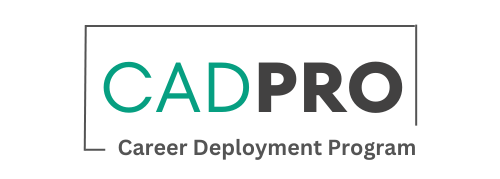
As a registered nurse, you have a versatile career that offers numerous job opportunities across various healthcare settings. Whether you prefer working in hospitals, nursing homes, clinics, or home healthcare, the demand for registered nurses is high. Here are some in-demand registered nurse jobs in your area:
-
- Acute Care Hospital Nurse: Provide high-quality patient care in a fast-paced hospital environment, addressing diverse medical needs.
-
- Long-Term Care Nurse: Deliver compassionate care to elderly patients in nursing homes, assisting with daily living tasks and medication management.
-
- Outpatient Clinic Nurse: Work in a clinic setting, conducting routine check-ups, administering vaccinations, and performing health screenings.
-
- Home Health Care Nurse: Offer personalized care to patients in their homes, managing wound care, medications, and other medical needs.
-
- Travel Health Care Nurse: Explore new locations while filling temporary positions in healthcare facilities, expanding your skills and experience.
-
- Occupational Health and Safety Nurse: Collaborate with employers to provide health and safety services, including health screenings and work-related injury care.
-
- Case Management Coordinator: Facilitate patient care and services, working with healthcare providers and insurance companies to ensure seamless care.
-
- Community Health Nurse: Promote health education and awareness in community settings, providing health screenings and services.
-
- Health Informatics Specialist: Leverage technology to enhance patient care, working on electronic health records and healthcare software.
-
- Patient Education Specialist: Empower patients and their families with knowledge on healthy habits, disease management, and medication use.
Jobs Requirements:
Education
-
- Associate’s degree in nursing (ADN): A two-year degree that prepares students for entry-level nursing practice.
-
- Bachelor’s degree in nursing (BSN): A four-year degree that provides advanced education in nursing theory, research, and leadership.
Some employers may prefer or require a BSN degree for certain positions or specialties.
Licensure
-
- Registered Nurse (RN) license: Obtained by passing the National Council Licensure Examination (NCLEX-RN) after graduating from an accredited nursing program.
-
- State-specific licensure: Requirements vary by state, but most states require RNs to renew their licenses periodically and complete continuing education credits.
Experience
-
- Entry-level: 0-1 year of experience, typically in a hospital or clinical setting.
-
- Mid-level: 1-5 years of experience, with a focus on developing specialty skills.
-
- Senior-level: 5+ years of experience, with leadership or management responsibilities.
Some employers may require or prefer candidates with specific experience in a particular setting or specialty.
Skills
-
- Communication skills: Effective verbal and written communication with patients, families, and healthcare teams.
-
- Interpersonal skills: Ability to work collaboratively with diverse teams and build strong relationships with patients and families.
-
- Critical thinking skills: Sound judgment and decision-making in high-pressure situations.
-
- Technical skills: Proficiency in electronic health records, medical equipment, and software applications.
-
- Time management skills: Ability to prioritize tasks, manage time effectively, and adapt to changing situations.
Additionally, some employers may require or prefer skills in specific areas, such as:
-
- Language skills: Fluency in languages other than English.
-
- Certifications: Specialized certifications, such as Basic Life Support (BLS), Advanced Cardiovascular Life Support (ACLS), or Pediatric Advanced Life Support (PALS).
-
- Computer skills: Proficiency in specific software applications or systems.
These requirements may vary depending on the employer, speciality, and work setting.
Job Outlook and Salary
The job outlook for registered nurses is promising, with a projected growth rate of 12% from 2020 to 2030. The median annual salary is around $76,000, varying by employer, specialty, and location.
To become a registered nurse, you typically need to complete a nursing program that leads to an associate’s or bachelor’s degree, which usually takes around 2-4 years. This is followed by passing the National Council Licensure Examination (NCLEX-RN) to obtain your nursing license.
Here's a more detailed explanation of the typical pathway to becoming a registered nurse:
Take required classes in biology, chemistry, math, and English
Meet the admission requirements for a nursing program
ADN programs usually take 2 years to complete and provide a foundational education in nursing
BSN programs typically take 4 years to complete and provide a more comprehensive education in nursing, including leadership and community health
Participate in supervised clinical experiences in various healthcare settings, such as hospitals and clinics
Gain practical experience in patient care, assessment, and treatment
Register for and pass the National Council Licensure Examination-Registered Nurse (NCLEX-RN) exam
Meet the licensing requirements in your state or country
Consider specializing in a particular area of nursing, such as pediatrics or critical care
Obtain certifications, such as CCRN (Certified Critical Care Registered Nurse) or CPN (Certified Pediatric Nurse)











